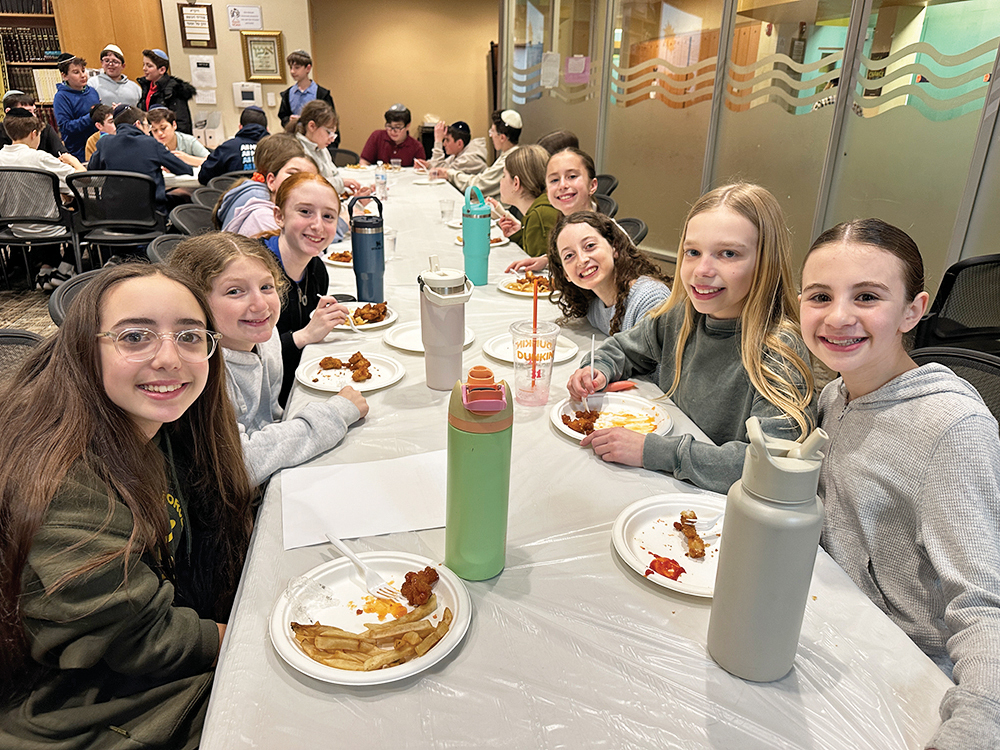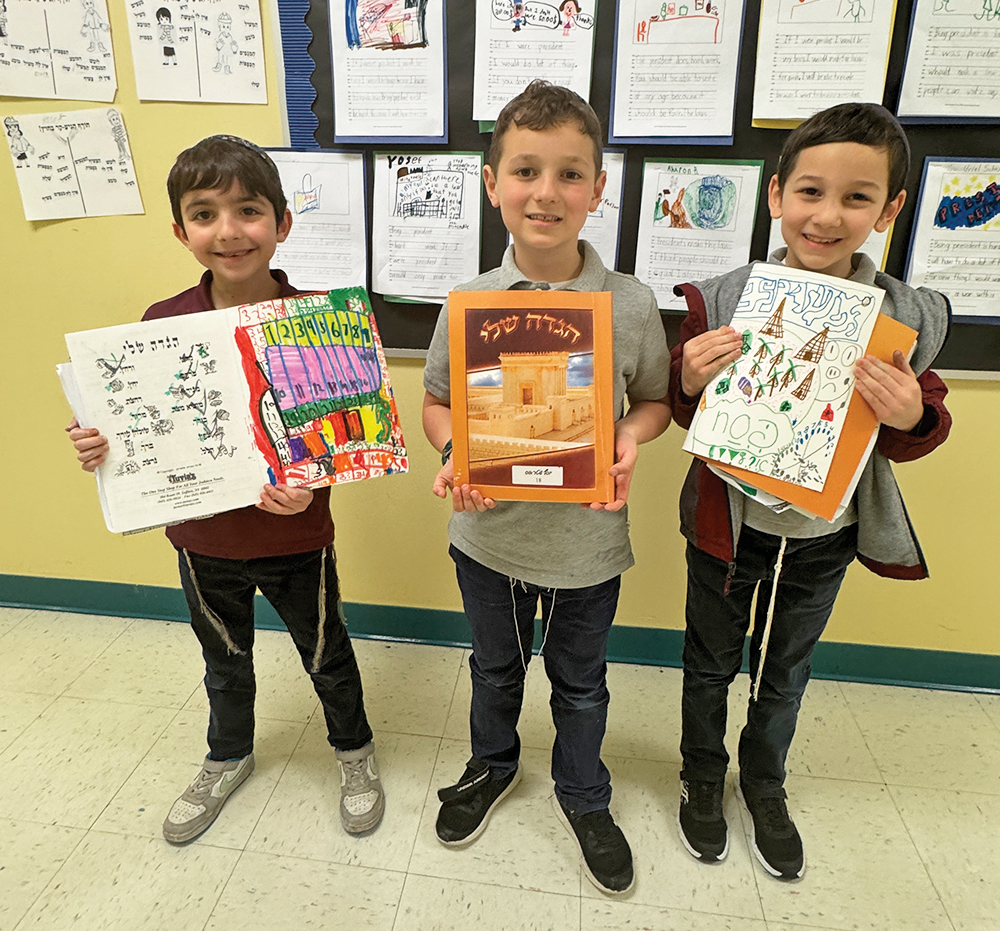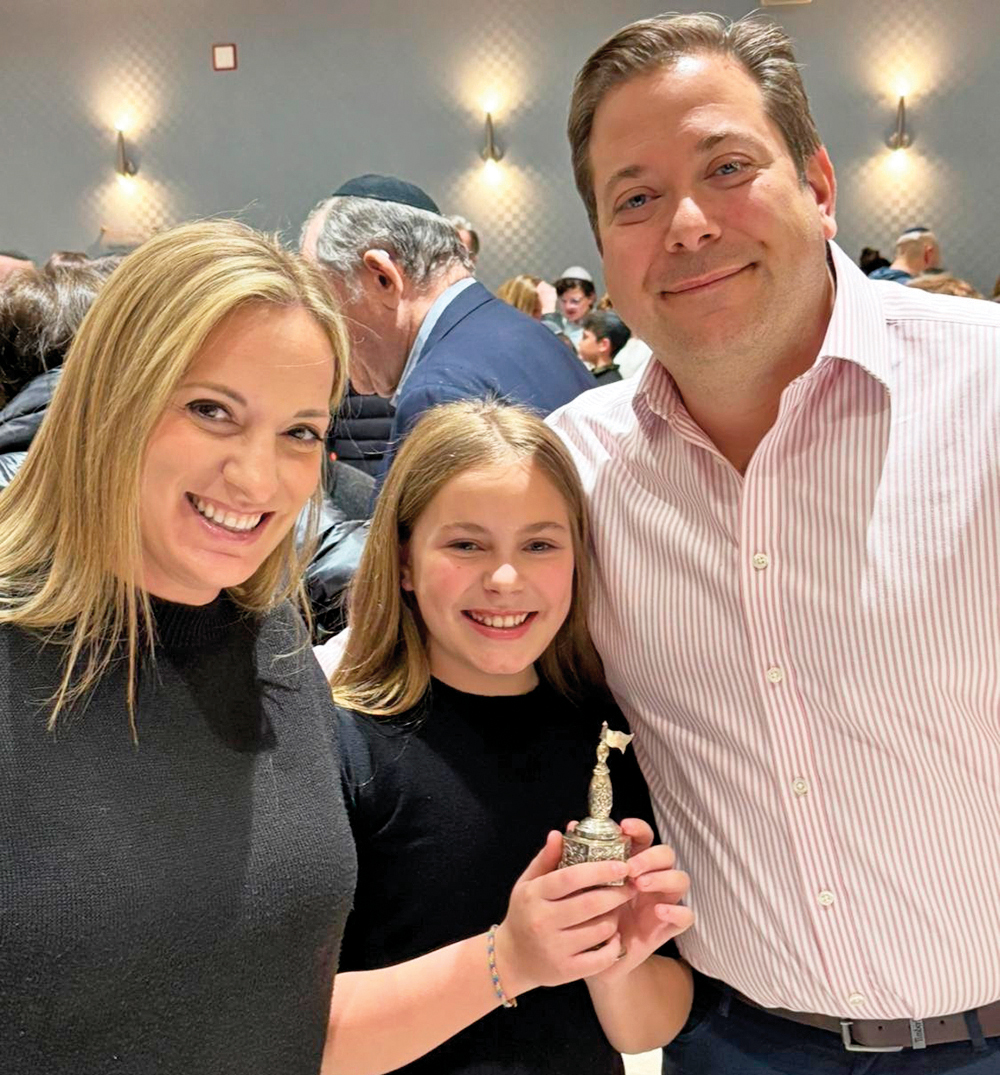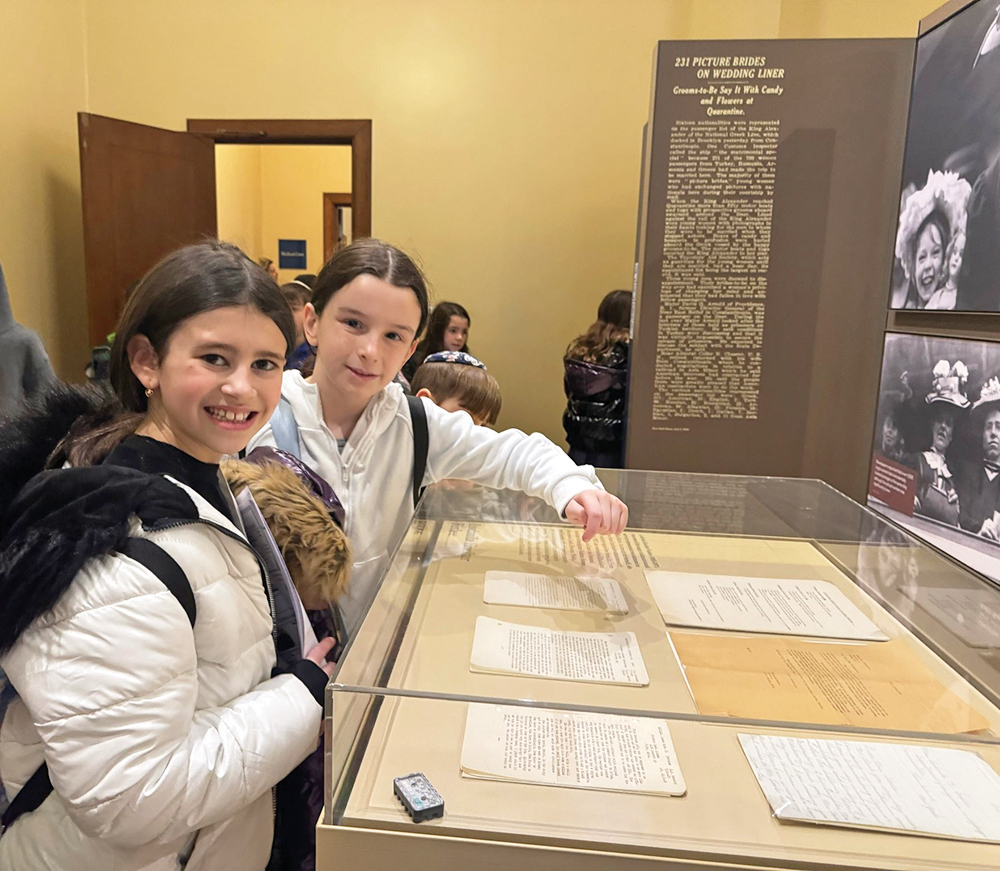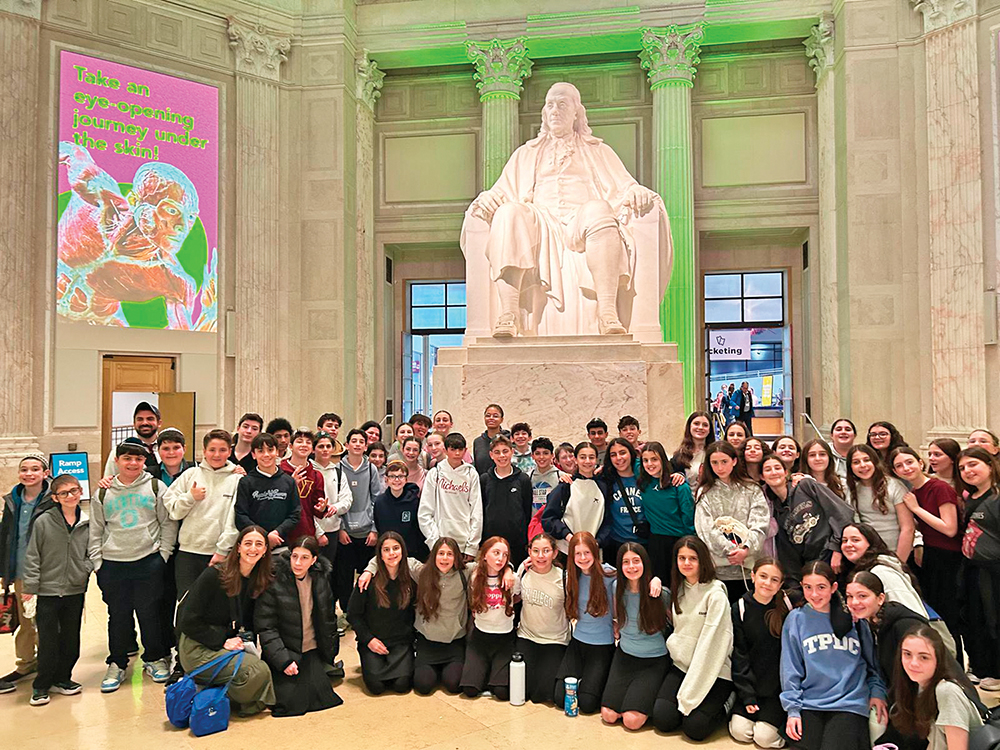The tragic news has just arrived that the great Avraham has died. The entire world is grieving the loss of the spiritual leader of the generation. The deceased’s young grandson Yaakov is preparing the traditional lentil soup to serve his father at the post-funeral meal of consolation. Suddenly, his brother Esav appears and demands a portion.
“Pour me some of this red, red soup, for I am faint,” he declares.
“Sell me today your birthright,” Yaakov replies.
“I am ultimately going to die, so why would I need this birthright?” responds Esav.
“Swear to me today,” says Yaakov. Esav swears to him and sells his birthright to Yaakov. Yaakov then gives Esav bread and lentil soup. He eats and drinks, gets up and leaves, scorning the birthright.
***
Today’s daf discusses the Scriptural sources for the firstborn’s entitlement to a double portion of inheritance.
״וּבְנֵי רְאוּבֵן בְּכוֹר יִשְׂרָאֵל, כִּי הוּא הַבְּכוֹר, וּבְחַלְּלוֹ יְצוּעֵי אָבִיו נִתְּנָה בְּכֹרָתוֹ לִבְנֵי יוֹסֵף בֶּן יִשְׂרָאֵל, וְלֹא לְהִתְיַחֵשׂ לַבְּכֹרָה״,נֶאֶמְרָה ״בְּכוֹרָה״ לְיוֹסֵף, וְנֶאֶמְרָה ״בְּכוֹרָה״ לְדוֹרוֹת; מָה בְּכוֹרָה הָאֲמוּרָה לְיוֹסֵף – פִּי שְׁנַיִם כְּאֶחָד, אַף בְּכוֹרָה הָאֲמוּרָה לְדוֹרוֹת – פִּי שְׁנַיִם כְּאֶחָד. וְאוֹמֵר: ״וַאֲנִי נָתַתִּי לְךָ שְׁכֶם אַחַד עַל אַחֶיךָ, אֲשֶׁר לָקַחְתִּי מִיַּד הָאֱמוֹרִי בְּחַרְבִּי וּבְקַשְׁתִּי״ – וְכִי בְּחַרְבּוֹ וּבְקַשְׁתּוֹ לָקַח?! וַהֲלֹא כְּבָר נֶאֱמַר: ״כִּי לֹא בְקַשְׁתִּי אֶבְטָח, וְחַרְבִּי לֹא תוֹשִׁיעֵנִי״! אֶלָּא ״חַרְבִּי״ – זוֹ תְּפִלָּה, ״קַשְׁתִּי״ – זוֹ בַּקָּשָׁה.
רשב”ם
זו תפלה – שהתפלל יעקב על בניו ושזכה לקנות הבכורה מעשו בתפלתו
“And the sons of Reuven the firstborn of Israel; for he was the firstborn, but when he defiled his father’s couch, his birthright was given to the sons of Yosef the son of Israel; yet not so that he was to be considered genealogically as the firstborn.” “Birthright” is stated about Yosef and “birthright” is stated about future generations: Just as the birthright stated about Yosef refers to a double portion, so, too, the birthright stated about future generations means a double portion. Indeed, it says: “Behold I have given to you one portion more than your brothers, which I took from the hand of the Amorite by my sword (בְּחַרְבִּי) and by my bow (בְקַשְׁתִּי).” But did Yaakov take it by the sword and bow? Does it not say, “For I trust not in my bow, nor shall my sword save me!” Rather, “my sword” refers to prayer and “my bow” refers to supplication.
Rashbam: This refers to prayer – that Yaakov prayed for his children and that he merited acquiring the birthright from Esav with his prayer.
***
To appreciate the connection between swords, bows, prayers and supplications, we need to take a closer look at the Hebrew. Rashbam explains that Yaakov prayed to be chosen as the rightful firstborn. The word בְּחַרְבִּי, meaning “my sword,” may be separated into two words: בִּי–בְּחַר, meaning “choose me.” Israel did not become God’s chosen through violent means but by engaging in prayer. Likewise, the word בקשתי, meaning “my bow,” may be read bakashati, meaning “my supplication.”
The symbolism of the sword and the bow serves to demonstrate the difference between prayer and supplication. On the physical battlefield, you use a sword to slay enemies in your immediate vicinity. But for enemies located at a distance, you need a bow and arrow. Likewise, on the spiritual battlefield, we beseech Heaven for assistance in overcoming both immediate and present challenges as well as praying for future and eternal success.[1] That difference was the essential distinction between Yaakov and his brother Esav. The latter’s response, “I am ultimately going to die, so why would I need this birthright?” showed his utter lack of concern for the future.
What are some of the other differences between these two types of weapons? A sword will inflict damage as soon as you use it. Contrast that with a bow and arrow that requires a certain level of expertise to inflict harm upon your enemy. You need to know how to aim well enough so that your weapon reaches your target. Another difference is the direction you move in as you operate each weapon. To use a sword, you thrust the weapon forwards. By contrast, to use a bow and arrow, you must pull your weapon backwards and the further you pull back, the farther the arrow will fly. But of course, combining these two aspects, the farther you want the arrow to fly, the greater the expert you will need to be to ensure it strikes the target.
Perhaps that is the meaning of Yaakov’s blessing to Esav, “You shall live by the sword”: Your life is, and always will be, about instantaneous gratification. You will conquer and seize the desires of the present with no regard to the future. Because the conquest of future enemies often demands pulling back from one’s position today— taking that bow and arrow and drawing it back so that it almost feels like one is heading in the wrong direction. But as anyone who has saved and invested for a better tomorrow knows, if you limit your desire for satisfaction today, you will have even greater success and satisfaction in the future. And if that’s true of satisfaction in this physical world, then it is most certainly true of satisfaction that you will receive in the World to Come.
However, it is not enough to deny yourself the pleasure today with the blind faith that doing so will afford you greater pleasure in the future. You also need to know clearly what your target is. You are drawing back the arrow in the bow in the here and now so that you can conquer some target in the distant future. But that achievement requires skill, precision and thoughtfulness. An essential component of pulling back in the present is contemplating where you have come from, where your roots are, what your origin story is, and propelling yourself to great heights and incredible distances by appreciating the background people and circumstances that brought you to this point and made you who you are today. The more you pull that arrow back and comprehend the foundation you are building upon, the further the arrow will fly.
We are the Chosen People, because Yaakov pleaded with God, “Choose me!” Nevertheless, the story does not culminate with our patriarch Yaakov. You must constantly beseech God, “Choose me!” As you begin to engage in the exercise of chosenness, you will start to see miracles and promotions in your life as God chooses and exalts you, knowing that you recognize that He alone is the source of all power and dominion. May you forever appreciate where you’re coming from and where you’re going to!
[1] Ben Yehoyada
Rabbi Dr. Daniel Friedman is the author of The Transformative Daf book series. He battles Christian antisemitism and teaches International Relations at Landers.



